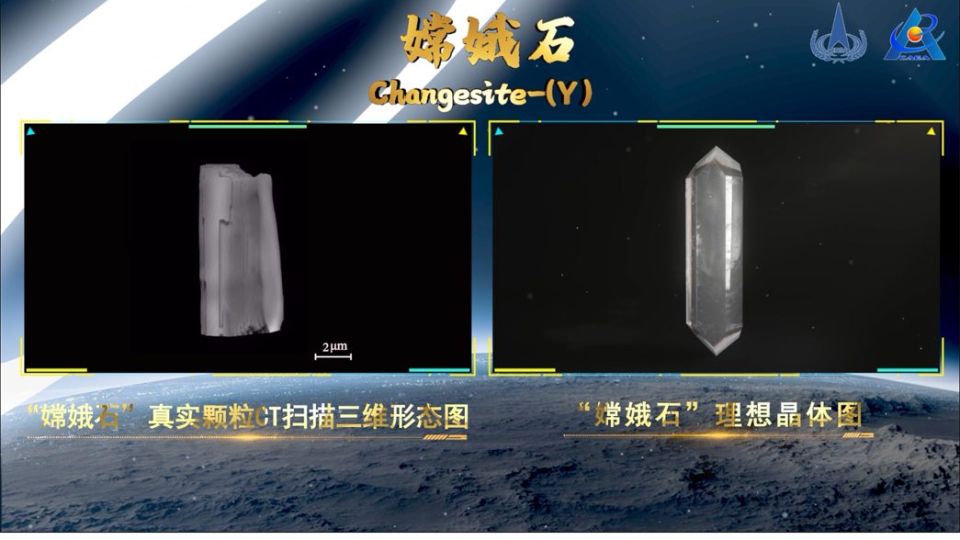September 9, 2022
BEIJING – Chinese scientists have achieved a remarkable feat in their research of the moon as they have discovered and identified the sixth new lunar mineral.
The China National Space Administration and the China Atomic Energy Authority jointly announced in Beijing on Friday that the new mineral – Changesite-(Y) – was found by scientists at the Beijing Research Institute of Uranium Geology from surface samples returned by the country’s Chang’e 5 robotic mission and has been certified by the International Mineralogical Association and its Commission on New Minerals, Nomenclature and Classification.
The Changesite-(Y), which falls in the category of lunar merrillite, has become the first lunar mineral ever discovered and identified by Chinese scientists, making China the third nation in the world, after the United States and Russia,that has achieved such feat, officials from the two governmental agencies said at a news conference in Beijing.
The mineral sample, in the form of a single-crystalline particle with a diameter of 10 microns, was manually separated by researchers from more than 140,000 tiny particles and then analyzed through a series of advanced mineralogical methods, according to the Beijing Research Institute of Uranium Geology, one of the major institutes of China National Nuclear Corp.
Li Ziying, chief scientist of the lunar sample research at the institute, said the discovery of the new mineral will extensively help researchers in their studies about the history and physical traits of our moon.
One of the world’s most notable space activities in 2020, the Chang’e 5 robotic mission was launched in Nov 24 that year at the Wenchang Space Launch Center in South China’s Hainan province and successfully landed on the moon on Dec 1 that year. It was the world’s third spacecraft to touch down on the lunar surface in the 21st century after its two Chinese predecessors – Chang’e 3 and 4.
The landmark mission returned 1,731 grams of lunar rocks and soil back to Earth on Dec 17, 2020, achieving a historic accomplishment about 44 years after the last lunar substances were brought back from our nearest celestial neighbor.
The 23-day mission was one of China’s most sophisticated and challenging space endeavors, and made China the third country to retrieve materials from the moon, after the United States and the former Soviet Union.
The China National Space Administration distributed the first batch of Chang’e 5 lunar samples in July 2021.
The samples, weighing about 17.5 grams, were divided into 21 lots and handed over to scientists from 13 domestic research organizations working on 31 scientific projects.


